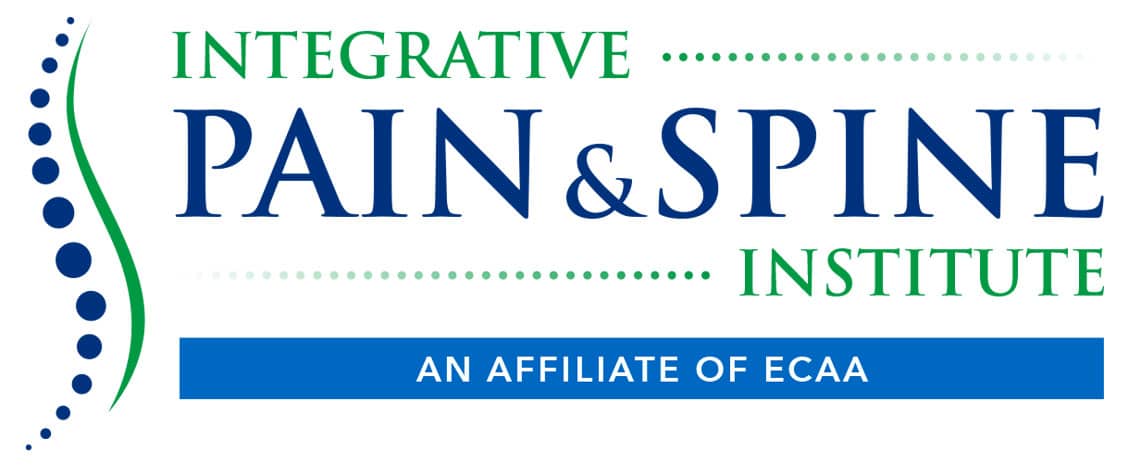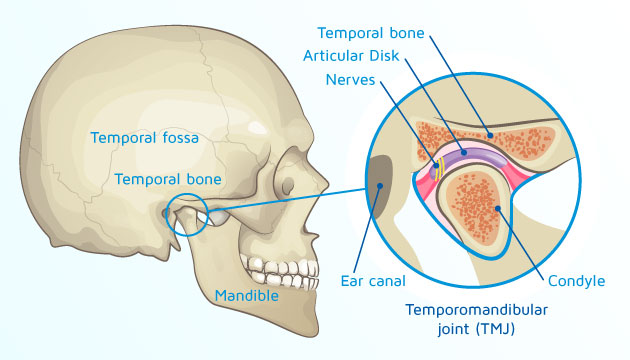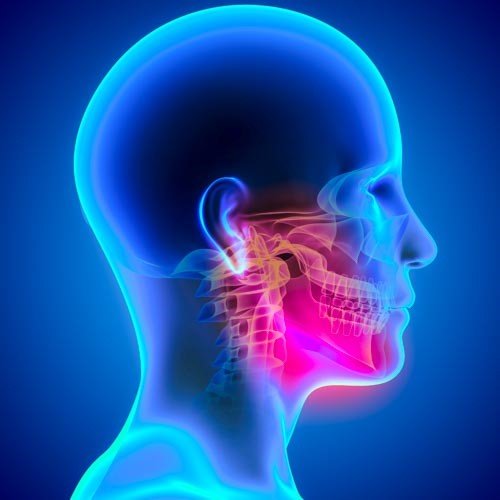An estimated 10 million Americans suffer from TMJ disorders, are you one of them? TMJ stands for the temporomandibular joint, which connects your jawbone to your skull. You have two of these joints, one on each side of your head, located just in front of your ears. The TMJ allows you to move your jaw smoothly while talking, chewing, and yawning. TMJ disorders (TMD) occur when there is an issue with the muscles, ligaments, or the joint itself, leading to pain or restricted movement.
What are the Symptoms of TMJ Disorders?
• Jaw pain or tenderness
• Difficulty opening or closing your mouth fully
• Clicking, popping, or grinding noises when moving the jaw
• Pain around the ears or in the face
• Headaches or neck pain
• Lockjaw, where the jaw gets stuck open or closed
Symptoms can range from mild discomfort to severe pain, potentially affecting daily activities like eating and speaking.
What Causes TMJ Disorders?
TMJ disorders can be caused by a variety of factors, including:
• Jaw injury: Trauma to the jaw or head can damage the TMJ.
• Arthritis: Osteoarthritis or rheumatoid arthritis can impact the joint.
• Bruxism (teeth grinding): Grinding or clenching your teeth, especially at night, puts pressure on the TMJ.
• Stress: High-stress levels can cause muscle tension, leading to jaw clenching and TMJ pain.
• Misalignment: A misaligned bite or teeth can cause uneven pressure on the joint.
How to Diagnosis TMJ?
If you experience symptoms of TMJ, a healthcare provider can diagnose the condition through:
• Physical examination: Checking for tenderness, listening for clicking sounds, and assessing jaw movement.
• Imaging tests: X-rays, CT scans, or MRIs can help visualize joint structure and any damage to bones or soft tissues.
What are the Treatment Options for TMJ Disorders?
Treatment for TMJ disorders varies based on the severity of symptoms and the underlying cause. Below is outlined treatment options from conservative options to the most invasive surgically options. It is important to always consultant with a healthcare professional prior to incorporating any new medical advice into your lifestyle.
1. Home Care and Lifestyle Changes
• Apply Heat or Cold: Use a warm compress or ice pack to reduce inflammation and alleviate pain.
• Practice Gentle Jaw Exercises: Your healthcare provider may recommend exercises to strengthen jaw muscles and improve flexibility.
• Eat Soft Foods: Opt for soft foods to minimize stress on the jaw joint.
• Avoid Overuse: Limit activities that strain the jaw, such as chewing gum or opening your mouth widely.
2. Medications
• Pain Relievers: Over-the-counter pain relievers like ibuprofen or acetaminophen can help manage pain.
• Muscle Relaxants: Prescribed for short-term use to relieve muscle tension in the jaw.
• Anti-Inflammatory Medications: May be recommended to reduce inflammation in the joint.
• Tricyclic Antidepressants: Sometimes prescribed in low doses to help manage pain and control bruxism.
3. Oral Appliances
• Mouthguards/Nightguards: Worn while sleeping, these appliances prevent teeth grinding and reduce pressure on the TMJ.
4. Physical Therapy
• Physical therapists can use a variety of techniques, such as ultrasound therapy, massage, and targeted exercises, to strengthen the muscles around the TMJ and improve jaw mobility.
5. Trigger Point Injections
• Corticosteroid Injections: These can reduce inflammation in the joint and provide temporary pain relief.
• Botox Injections: Botox may be used to relax muscles and alleviate tension in cases of severe teeth grinding or clenching.
6. Surgical Treatments
Surgery is usually considered a last resort when other treatments are ineffective, and severe structural problems are present. Options include:
• Arthrocentesis: A minimally invasive procedure where the joint is flushed with a sterile solution to remove debris and reduce inflammation.
• Arthroscopy: A small incision is made to insert an arthroscope to view and possibly treat the joint.
• Open-Joint Surgery: Reserved for more serious cases where structural issues need to be corrected.
When Should You Contact a Healthcare Provider?
If you experience persistent pain, difficulty in jaw movement, or symptoms that disrupt your daily activities, and it has not been controlled with medications and lifestyle changes, it’s time to consult with Dr. Manvar. With an in-office evaluation, our team can find the right combination of interventional treatment ranging from trigger point injections to PT. Call today as early intervention can often prevent the condition from worsening and help you find relief sooner.


